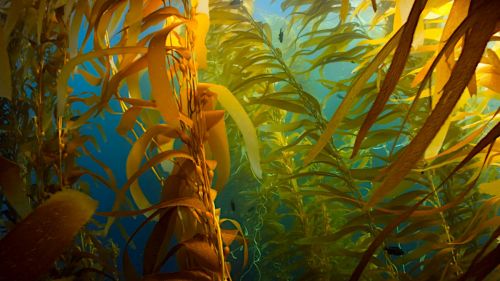A new progressive management pathway for improving seaweed biosecurity
20 December 2022 | 918 Downloads | .pdf | 1.14 MB | Aquatic plants, Health and Biosecurity
A new paper in Nature Communications by Cottier Cook et al. describes the need for a new progressive management pathway to improve seaweed biosecurity.
The seaweed aquaculture industry has rapidly expanded to 35 million tonnes per annum, a production that represents 51% of global coastal aquaculture by volume. The industry is globally connected supplying a variety of products including foods ingredients for cosmetics, pharmaceuticals, and food additives. Recently, seaweed aquaculture has been recognised for its potential to capture atmospheric carbon.
Rising seawater temperatures and coastal eutrophication have led to an increase in infectious diseases and pest outbreaks. However, research to identify seaweed pests and diseases is at an early stage. Control is difficult, given the open nature of seaweed farming systems, but there is evidence that relatively simple control measures can significantly reduce the incidence of disease.
The paper, which is co-authored in part by NACA staff, describes a process for developing and implementing locally-adapted progressive management pathways to address seaweed disease and pest issues. It is an open access publication, distributed under the Creative Commons Attribution 4.0 International License.
Creative Commons Attribution.
